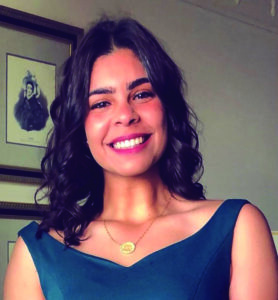 DEGREE: B.S. in engineering with a concentration in mechanical engineering
DEGREE: B.S. in engineering with a concentration in mechanical engineering
JOB TITLE: Associate technical professional and coiled-tubing operations supervisor with Halliburton Overseas (international petroleum services company)
FAVORITE TRINITY MEMORY: Definitely with no hesitation, my first semester at Trinity. We were playing a [squash] match against Penn, and my match was the final one, as I think we were 4–4 and my match was the tiebreaker. I was down 2–0 and came back to win the match, and we won 5–4. This was the match that actually described my experience at Trinity College. Always get up after you get knocked out, and always look at the finish line and not the distractions around it.
What does your work entail? I am responsible for leading high-profile jobs, handling all of the equipment and crew, and being Halliburton’s representative to the customer.
How did you get into this field? After graduation, I applied to hundreds of jobs and did a paid internship at Halliburton in Egypt (my home country). I started in a different department but then ended up in the department I felt most passionate about.
What do you enjoy most about your work? I have always enjoyed working with hydraulics in mechanics, and the whole coiled-tubing unit (equipment) I am working with is powered hydraulically. I also enjoy breaking the stereotypes here in Egypt as the petroleum industry is dominated by males. This challenge is basically a double-faced coin, both a blessing and an extremely tough challenge that I have to overcome every day.
Would you tell us more about the challenges you face? I am the first female coiled-tubing operations supervisor in Egypt and the Middle East, and my biggest challenges are acceptance as a female among hundreds of males and gaining the respect I deserve without the need to prove more than once how competent I am. At the end of the day, I am a 25-year-old female leading a crew of 20 males who are older and have worked in my field longer than I have. This also means having to deal with people from backgrounds very different from mine. However, I have always loved challenges, and it is one of the things that I love about my job.
Your brother Mohamed ’24 is a Trinity student, and he also plays squash for the Bantams. What does it mean to you that he followed in your footsteps at college? Honestly, it means the world to me. I visited him last February, and seeing him at Trinity made me super emotional and proud. Being an international student at Trinity College and a part of its squash team is a once-in-a-lifetime experience, and I am super happy that Mohamed gets the chance to enjoy it.
How did Trinity prepare you for what you do now? I was a part of the women’s squash team at Trinity, and during my four years, the team represented 13 nationalities. Having teammates with extremely different backgrounds around me taught me a lot and made me learn how to accept people, treat them with respect, and sometimes lead them, as I learned during my senior year as a captain.
What was the most memorable course you took at Trinity? “Biomechanics.” I got to mix my two favorite things—mechanics and squash—in my final project in that course, and I loved it. I made an experiment to measure the amount of power needed in every squash shot, and it worked! It also was one of my last projects at Trinity, so I had a lot of emotions going into it.
Was there a professor at Trinity who was particularly influential? Professor Randy Lee. Although he is a psych professor, he also was our sports psychologist for the team. Honestly, I wouldn’t have survived my four years without him. He was inspiring, supportive, and always there when I needed him. Shout-out to you, Randy!
